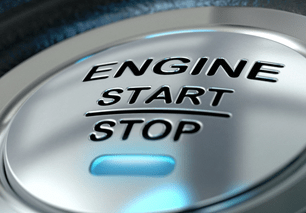What Fuel Efficiency Is and Why It Matters at Tracy’s Tire Pros in Wichita
In Wichita, where drivers cruise Kellogg Avenue or take the I-135 to and from work, fuel efficiency affects more than just your gas budget. So, whether you’re filling up near Old Town or heading out to Cheney Lake, keeping your car running efficiently means fewer stops at the pump and more money in your wallet.
At Tracy’s Tire Pros in Wichita, we understand how important every mile per gallon can be. Therefore, here’s what fuel efficiency is, how it works, why it matters, how to maintain it, and when to stop by for expert service.
So, What Fuel Efficiency Is
To begin with, fuel efficiency refers to how far your vehicle can travel using a specific amount of fuel. Because every car burns fuel to create power, the goal is to get the most miles from every gallon of gas.
Also, manufacturers usually measure fuel efficiency in miles per gallon (MPG)—with higher numbers meaning better performance at the pump.
So, How Fuel Efficiency Works
First, your engine burns fuel and air to produce energy. Then, that energy moves your vehicle down the road.
Next, systems like your transmission, tires, and air filters affect how efficiently your engine uses fuel. Afterward, driving habits—like speeding or sudden braking—also play a major role in your MPG.
Because fuel efficiency depends on several connected systems, even small issues can add up to big losses at the gas station.
So, Why Fuel Efficiency Is Important
Clearly, fuel efficiency is more than just a number. For starters, it helps you save money on gas—something every Wichita driver can appreciate.
In addition, better efficiency means your vehicle produces fewer harmful emissions. Furthermore, it reduces wear on your engine and other parts by ensuring smooth performance.
Most importantly, high fuel efficiency means your car is running the way it should—saving you time, money, and stress in the long run.
So, How to Maintain Good Fuel Efficiency
Thankfully, keeping your fuel efficiency high doesn’t have to be complicated. So, follow these smart habits:
-
Get regular oil changes to keep the engine running smoothly.
-
Maintain proper tire pressure for less rolling resistance.
-
Replace dirty air filters to ensure a clean air-fuel mix.
-
Avoid aggressive driving, speeding, and rapid acceleration.
-
Visit Tracy’s Tire Pros in Wichita for fuel system cleanings and check-ups.
Because small changes make a big difference, staying consistent with maintenance goes a long way.
So, When to See a Mechanic at Tracy’s Tire Pros in Wichita
Although reduced fuel efficiency may not be immediately obvious, there are clear signs to watch for. So, visit us in Wichita if:
-
Suddenly, your gas tank seems to empty much faster than usual.
-
Recently, you’ve noticed poor acceleration or sluggish performance.
-
Lately, your check engine light has turned on unexpectedly.
-
Consistently, your tires feel underinflated or uneven.
-
After a tune-up, your MPG still doesn’t improve.
Because falling fuel efficiency often signals a deeper issue, catching it early can prevent more expensive repairs down the road.
So, Call Tracy’s Tire Pros in Wichita Today for Fuel Efficiency Service You Can Trust
Since fuel efficiency affects your wallet, your vehicle, and the environment, it pays to stay ahead of the game. At Tracy’s Tire Pros in Wichita, our certified technicians know how to diagnose fuel system issues, optimize performance, and help you get the most from every gallon.
Whether you’re heading across town or planning a weekend road trip, we’re here to help you drive farther—while spending less.
So, call Tracy’s Tire Pros in Wichita today for a fuel efficiency check-up—and enjoy smoother drives, better mileage, and more savings with every stop.
Tracy’s Tire Pros can help you with any automotive issues that you may have. And they have three locations for your convenience: West Maple Street auto care and auto repair, East First Street N. and West 21st Street N. And, Tracy’s Automotive is a proud dealer for Jasper Engines and Vogue Performance Exhaust systems.




